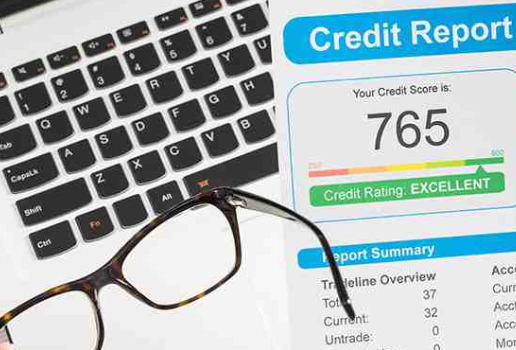
If you’ve ever wondered about your credit history or wanted to understand your financial standing better, getting a credit report is a great first step. It provides an in-depth look at your credit activities, such as loans, payments, and credit usage, giving you insight into your financial health. Many people, especially those new to credit or those who have lost track of their financial history, find these reports helpful in tracking progress and making informed financial decisions.
In Canada, two major credit bureaus, TransUnion and Equifax, offer free access to your credit report. However, it’s important to know that the option to get a free report is often hidden behind paid services. Let’s dive into what your credit report is, how to access it for free from TransUnion, and what you need to know about credit scores.
What Is a Credit Report?
Your credit report is essentially a detailed record of your credit activities and payment history. It includes essential information such as your credit usage, how promptly you pay off debts, and details about past credit applications. This data is used by lenders to assess your ability to repay borrowed money. Your report also includes some personal details, such as your address and employment information, though these may not always be up to date, especially if they were last updated during a previous credit application.
Key components of your credit report include:
- Payment History: This shows whether you’ve made your payments on time or have had delays.
- Credit Utilization Ratio: This represents how much of your available credit you’re using. A good rule of thumb is to keep this ratio under 60%.
- Credit Inquiries: Too many recent inquiries for credit might make lenders view you as a higher risk.
Understanding Your Credit Score
A credit score, which ranges from 300 to 900, is another crucial part of your financial profile. This three-digit number gives lenders an idea of how likely you are to repay borrowed money. It’s calculated based on the information in your credit report, and it’s constantly changing as your financial situation evolves.
Interestingly, your credit score may differ depending on which credit bureau is calculating it. Each bureau has its own method of scoring, and since creditors can choose which bureau to report to, your reports may not be identical. In addition, many banks or financial institutions generate their own internal credit scores that they use to make lending decisions.
Your score is not fixed. If your score is low, it could be due to a history of missed payments or a lack of credit history, especially if you’re just starting out or are new to the country. Conversely, a higher score suggests that you have a strong credit history, making you a less risky borrower in the eyes of lenders.
What Does a Credit Score Indicate?
Credit scores typically range from 300 to 850 or 900, depending on the agency. The higher your score, the less likely you are to be considered a financial risk. Your credit score is broken into categories:
- Poor: Scores at the lower end of the spectrum suggest poor credit habits.
- Fair: A score in this range indicates that you might have had some issues with credit but are working on improving.
- Good: A good score shows solid credit management and responsible borrowing.
- Very Good: This indicates excellent credit habits, with timely payments and low credit utilization.
- Excellent: A top score shows that you are a highly reliable borrower with a proven track record.
In essence, a higher score increases your chances of receiving favorable loan terms and lower interest rates. The closer your score is to 900, the more lenders trust you to repay what you borrow.
Credit Reports vs. Credit Scores
It’s crucial to understand that your credit report and your credit score are two distinct things. The credit report provides the detailed history and activities that make up your credit usage, while the credit score is a numerical representation of that information, summarizing your creditworthiness. Both are important, but while the report offers in-depth information, the score is what lenders typically use to make quick decisions about your credit applications.
Why Your Credit Score Matters
While obsessing over achieving a perfect score isn’t necessary, being aware of your credit score is essential. A higher credit score not only boosts your chances of securing loans with better interest rates but also improves your ability to access affordable credit. For major purchases, like buying a house or car, a good score can significantly ease the process. Moreover, in some job sectors, employers may check your credit score as part of their hiring process, especially if the job involves financial responsibilities.
What’s Included in Your Free Credit Report from TransUnion?
TransUnion offers a free “consumer disclosure,” which is a full account of your credit report. This disclosure details all the information held by TransUnion regarding your credit, including inquiries made by lenders, credit management companies, and even yourself. It’s important to note that while you may come across ads claiming a “free credit score,” these often lead to paid services. The “free credit score” is typically an unnecessary upsell, as the disclosure report itself is what you need.
By obtaining and reviewing your credit report regularly, you can stay on top of your financial health and ensure that your credit history is accurate. Checking your credit report can also help you catch any errors or potential fraud, giving you a chance to address issues early on.
Conclusion
Understanding your credit report and score is a key component of managing your financial health. TransUnion’s free consumer disclosure is a valuable resource that provides insights into your credit history and helps you monitor your credit activities. By staying informed about your credit and knowing how to access your report, you can make smarter financial decisions and maintain a strong credit profile.









